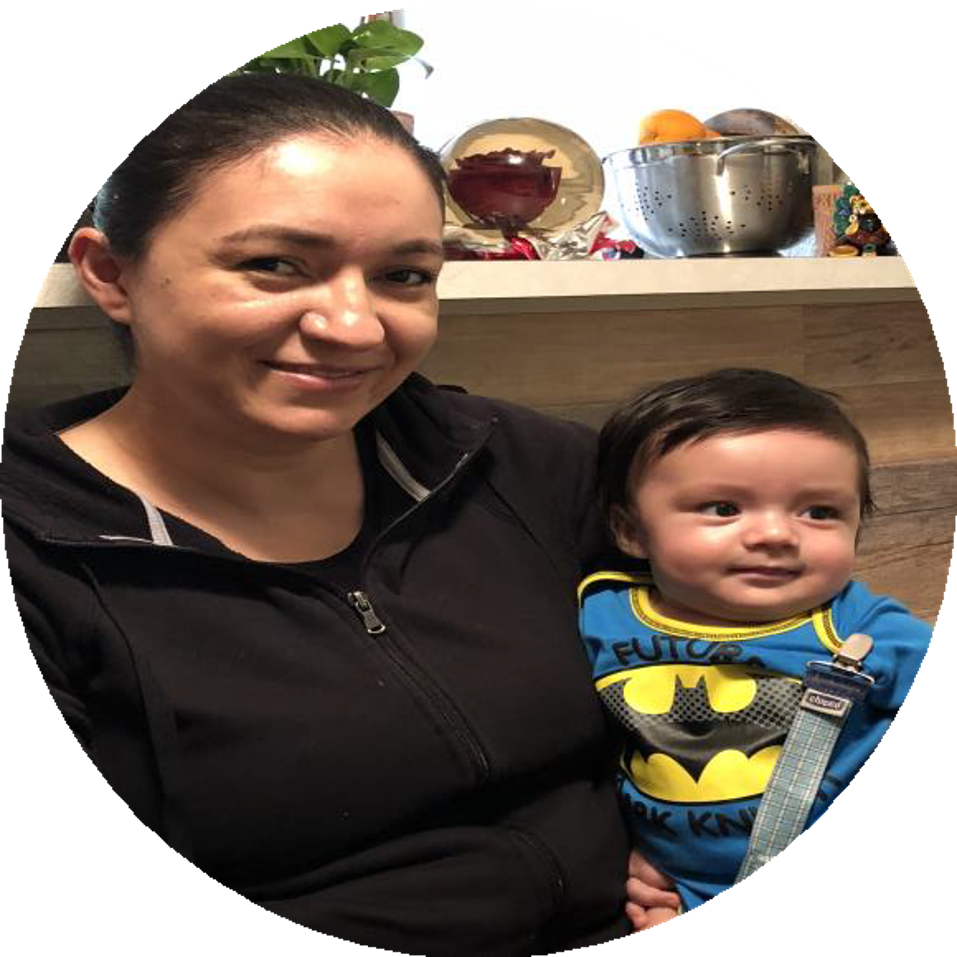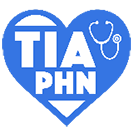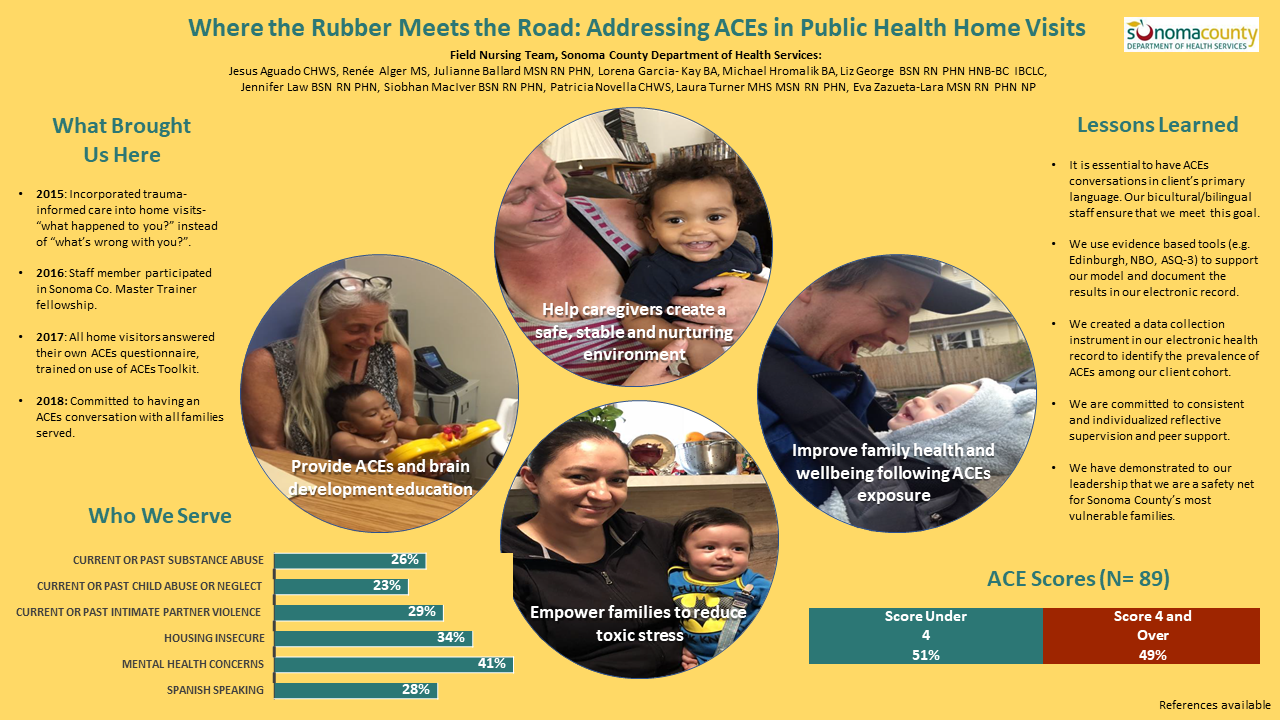- Home Visiting
- Pregnancy and Women's Health
- Teen Health
- Fathers and Partners in Parenting
- LGBTQ+ Family
- Find a Doctor / Get Health Insurance
- Birth Control
- Breast/chestfeeding
- Grief and Bereavement Support
- Adverse Childhood Experiences
- Comprehensive Perinatal Services Program
- Resources and Toolkits for Perinatal Service Providers
-
- World Breastfeeding Week and National Breastfeeding Month
- In Honor of Pride Month and Juneteenth
- Perinatal Mental Health
- A Look at the Data: Perinatal Health in Sonoma County
- Happy Belated National Women's Month!
- We want to wish you a Very Happy New Year!
- Home Visitor Newsletter Edition!
- Things to Know About Health Insurance and Medi-Cal
- Wrapping up October and SIDS (Sudden Infant Death Syndrome) Awareness Month
- Emergency Planning With Infants and Children
- National Breast feeding Month
- BIPOC Mental Health Month 2023
- Pride Month
- Social Determinants of Health 2023
- Congenital Syphilis Update
- MCAH Website
- Breast/chestfeeding Updates and Resources
- Sonoma County Perinatal Health Data
- Perinatal Resources for LGBTQ+ Folks
- Back to School Resources
- National Breastfeeding Awareness Month
- MPX and Pregnancy
- Perinatal Mental Health Toolkit
- Interconception care
- Good News: Kids Vax, PRM, Doulas, CHWs, and TIA PHN
- 2 Years or beyond
- Roe v Wade a Public Health and an Equity Issue
- Resources and Supports for Fathers
- Racial Equity and Health
- What is a Doula?
- Formula shortage resources
- Fentanyl Awareness
- COVID effects on child development
- Maternal Mental Health Month updates
- Perinatal Hepatitis Updates
- Medi-Cal Covers Postpartum Care for 12 Months
- Perinatal Hemorrhage Toolkit
- Keeping Medi-Cal beneficiaries Covered
- Maternal Mental Health Forum
- Spring e-Newsletter
- How to be a Breast/Chestfeeding Ally
- Women’s History Month
- Public Health Home Visiting Programs
- Promote Dental Care During Pregnancy
- Portrait of Sonoma County
- Love and Sex and Sexually Transmitted Infection. PrEP for Women and During Pregnancy- February 9, 2022
- Fetal Alcohol Spectrum Disorder, data, training, patient information - January 26, 2022
- Covid updates: Vaccination during pregnancy talking points, new booster requirements and isolations guidelines - January 5, 2022
- Financial literacy and financial well-being are important to overall health - January 19, 2022
- Birth Defects. Learn more about what causes, and how to prevent, Birth Defects - January 12, 2022
- Back to Home Visiting
Trauma Informed Approach in Public Health Nursing (TIA PHN)
The TIA PHN Nurse Home Visiting program is a collaboration of Field Nurse Home Visiting programs in Sonoma, Napa and San Francisco Counties. The program is currently participating in rigorous academic evaluation through UCSF to measure effectiveness. The ultimate goal is to develop an open source, evidence-based Field Nursing Program with identified outcomes and use of a specific curriculum.
Population Served
Low income (Medi-Cal eligible) pregnant persons and families with children 5 or under who have experienced, or are at risk for trauma (historical or current) and are experiencing medical and/or social challenges.
Model Objectives

- Mitigation of toxic stress
- Increased family resilience
- Optimized family health
Anticipated Outcomes

Short Term
Rates of immunization, contraception, primary and dental care, insurance, and breastfeeding at par with broader Medi-Cal population.
- Earliest identification and referral for depression (adults) & developmental delay (children).
- Increased parental understanding of Adverse Childhood Experiences (ACEs) effects on their individual and family health and well-being.
Medium Term
Continuation of the following resilience practices post program exit:
- Nutrition
- Exercise
- Sleep
- Mental Health
- Relationships
- Mindfulness
Long Term
- Disruption of intergenerational trauma
About Implementing the Model
- Article, Trauma Informed Public Health Nursing Visits to Parents and Children
- Resilience Handout in English; Resilience Handout in Spanish
- Training Videos: ACEs Introduction; How Do I Talk With Clients About ACEs?; (Notes for the ACEs video); Implementing the TIA PHN Model; Trauma-Informed Care Approach

